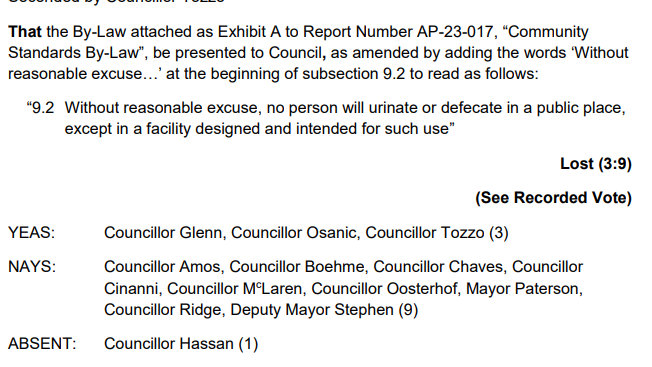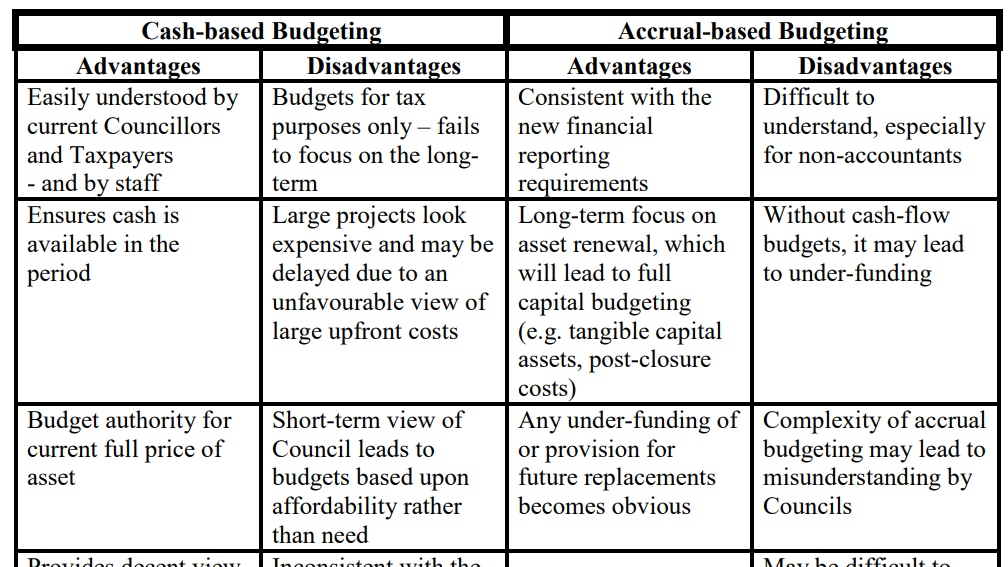It is the role of council to represent the public and to consider the well-being and interests of the municipality.
Section 224
Municipal community engagement plans in Ontario
Some municipalities in Ontario have developed formalized plans on how they are to engage residents of their community and collect feedback:
The City of Greater Sudbury conducted a community engagement review in 2014 to explore options to promote strategic and fulsome community engagement and provide citizens with opportunities to become involved in municipal decision-making processes that aligned with the Public Participation Policy.
The accompanying survey resulted in the highest number of respondents since the City started conducting regular surveys, with nearly 1,000 people providing a response, while the public input session was poorly attended, suggesting that it is important for residents to have the ability to engage at their convenience rather than at a specific date and time.
Political decision-making is most effective when it includes public input from an active, engaged and educated public. … It is the responsibility of [the City] to assess opportunities for public engagement.
City of Greater Sudbury, Public Participation Policy
There are a number of ways that a municipality can engage and inform residents and solicit feedback on plans and projects to gauge what the interests of the municipality are.
Common engagement options
- Accept presentations before council
- Accept written correspondence to council
- Accept petitions
Online community engagement software
EngagementHQ
EngagementHQ provides a primary location for each project or initiative that includes publishing updates, documentation and collecting feedback about the project.
It includes contact information (name, email and phone number) of the staff member responsible, a timeline of project updates, public feedback submitted by other residents and links to relevant files, allowing people to get “up to speed” follow along if they’re interested in a project that’s already underway.
The platform can send push notifications to users – such as emergency notices, event information, county waste collection changes, road closures, etc.
This gives the municipality the opportunity to inform, consult, involve, collaborate and empower residents and allows administration the ability to obtain feedback from residents

Questions and answers

Public feedback

Other software platforms
Municipalities’ online engagement platforms
Here are the municipalities in Ontario that use online engagement platforms:
- Ajax
- Algonquin Highlands
- Barrie
- Brampton
- Burlington
- Chatham-Kent
- Collingwood
- Guelph
- Hamilton
- Kawartha Lakes
- Kingston
- Lincoln
- Milton
- Ottawa
- Owen Sound
- Oxford County
- Port Colborne
- Peterborough
- Sarnia
- Seguin
- Selwyn
- Greater Sudbury: Publishes a report showing the traffic and submissions made through the platform
- Waterloo, Kitchener, Cambridge
- Welland
- Centre Wellington
How much does EngagementHQ/Bang the Table cost?
- Collingwood paid $15,000 per year in 2022
- Centre Wellington paid an annual fee of $10,000 in 2016, $10,176 in 2021
- Chatham-Kent paid an annual fee of $22,500 in 2020.
- Sarnia paid $18,000 per year in 2019
Live chat customer service
Some municipalities offer live chat customer service to residents, including:
Civic petitions
Petitions are a formal way citizens can bring grievances or concerns to the attention of City Council that become part of the public record.
Petitions should contain the following information and be submitted to the Office of the City Clerk:
- Contact information of the owner/representative of the petition, including full name, address, telephone number, and email
- Clear purpose of the petition
- Action(s) being requested
- Date the petition was started
- Name and postal code of each person who signed or electronically submitted their name to the petition, and if possible, the civic address of all participants.
Example petition forms
It is the fundamental right of citizens to petition their elected representatives.
City of Greater Sudbury
Speaking before council
Individuals or groups may request permission to appear before Council and speak at a Standing Committee or Council meeting as community delegates. This is a formal channel of public participation and the presentation will become part of the public record.
In Burlington, delegates have 10 minutes to address standing committees and 5 minutes to address Council. To register, speaking notes and PowerPoint presentations typically must be submitted beforehand.
Public input sessions / Calendar of opportunities
Find and subscribe to a variety of public engagement opportunities and events.
Open houses
Open meetings
Meeting minutes
Surveys
Social media
Follow on social media: Twitter, Facebook and Instagram.
Citizen Advisory Panels
Neighbourhood Associations
Community Action Networks
Email subscriptions
311
Communicating with council
The mayor and councillors can be contacted through informal channels such as e-mail, phone and mail.
Public Participation Spectrum
Many Canadian municipalities use the International Association for Public Participation’s (IAP2) spectrum/framework for public participation, which is a recognized global standard that shows the possible types of engagement with stakeholders and communities. The spectrum also shows the increasing level of public impact progressing through the spectrum beginning with “inform” through to “empower”.

Burlington outlines the tools they will use to engage the public in each of these categories:
| Inform tools | Consult tools | Involve tools | Example tools | Example tools |
|---|---|---|---|---|
| Fact sheets Websites Open houses | Public comment Focus groups Surveys Public meetings | Workshops Deliberate polling | Citizen Advisory Committees Consensus-building Participatory decision-making | Citizen Juries Ballots Delegated Decisions |

What is the public record?
All communications made through the Office of the City Clerk or at a public meeting (City Council, standing Committees, boards and committees) create a public record which is kept on file. They may be viewed by the public and copies may be released on request.
Informal vs formal channels
- Informal channels: Communications shared through informal channels such as sending email, phone and mail to a council member are NOT a matter of public record and not referred to during Council’s decision-making process.
- Formal channels: Communications shared through formal channels are a matter of public record, and are documented and referred to throughout Council’s decision-making process. All formal communication requests may need to be directed to a particular department such as Legislative & Court Services.
Sources
- Public Engagement Trends in Southwestern Ontario’s Municipalities – Marcy Puzanov, Western University Masters of Public Administration
- A Report for the City of Guelph: Community Engagement Policies in Comparator Municipalities (2012)
- Effective Online Engagement: A Municipal Context – Association of Municipal Managers




Leave a comment
All comments are reviewed prior to appearing on the site.
Rules: